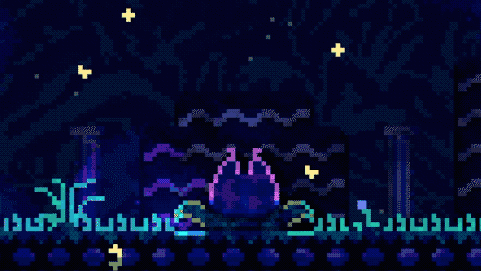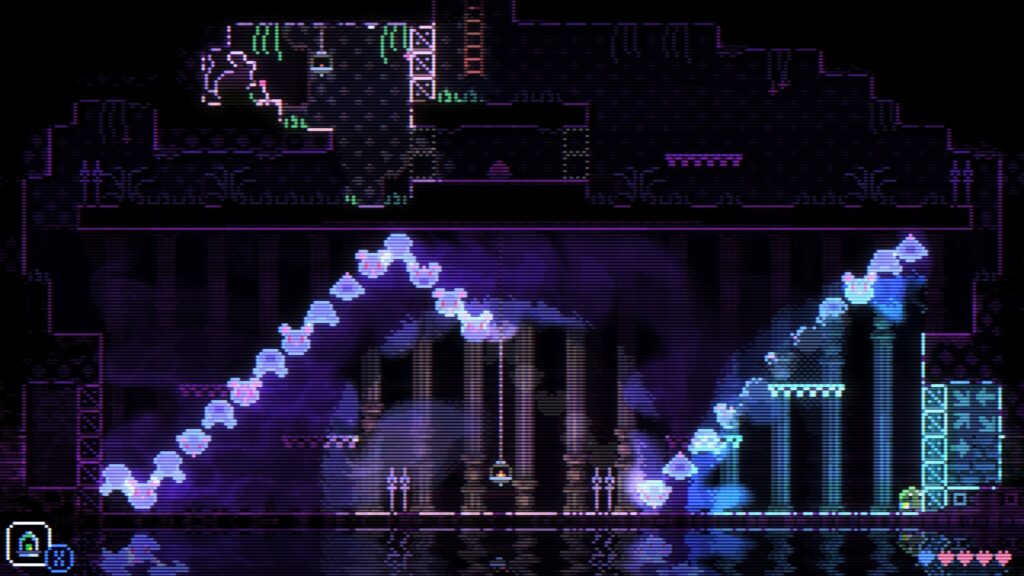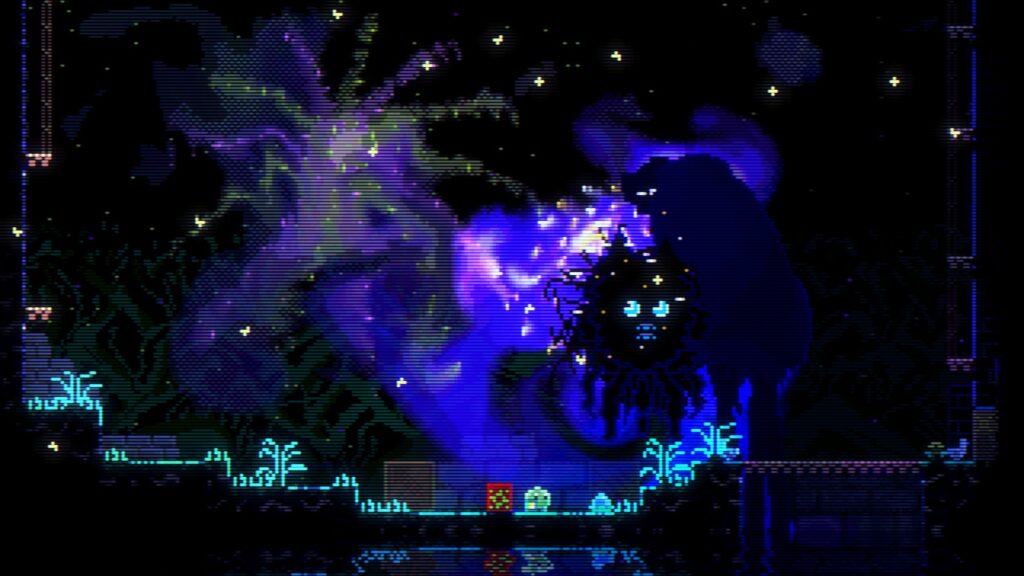I Loved Animal Well, But I'm Bothered By Its Artificial Depth
A great base game is undercut by tedious optional challenges

Animal Well is the latest Metroidvania to do more than just challenge players with simple platforming. Like Voidstranger and Tunic before it, this game features puzzles, puzzles within puzzles, puzzles within secrets in puzzles, and more. The platforming and action are as tight as you'd expect from any great game in this genre. And yet, I don't think Animal Well really sticks the landing when it comes to making the hunt for puzzles feel as interesting as Tunic or as layered as Voidstranger.
Down the rabbit/kangaroo/cat/dog/frog/ostrich hole
Animal Well begins with the player awakening in a strange world ruled by animals with no humans in sight. As a kind of blob-like creature, it's up to you to explore the world, find four mysterious flames, and figure out what's really going on. You won't find in-game explanations about the story and its events. Instead, you'll encounter four biomes full of challenges, secrets, and numerous hazards.
While you are free to visit any of the four areas right from the beginning (provided you can find them), you'll tend to find yourself moving forward based on the discovery of new items, which each introduce questions about what you should be doing and how you should use these newly acquired things. There are hostile creatures in this world, but more often than not you'll be avoiding them and using the environment to get past them. Over time, you'll unlock major upgrades in the form of various toys, and it's here where Animal Well starts to open up before you.
Toying around
The toy system represents one of the best examples of a meaningful upgrades system in any Metroidvania I've seen. Unlike Ori and the Blind Forest or Hollow Knight, Animal Well isn't focused quite so much on the platforming aspect. While the platforming can be challenging, the goal here is less about flawless platforming and more about figuring out how to navigate the world using your expanding toybox. Each of the game's items provide you with a new means of interacting with the world and its inhabitants, while also allowing you to sequence-break the heck out of the level design.

Here's a game that is practically begging you to break it apart. Doing so is optional, though, and your journey will vary greatly depending on which area you explore first and whether or not you can find some of the tougher-to-locate items.
Also, as a side note, I love the art design of this game. This is the first time I've seen a CRT filter add a great deal of value to the visual design; it brings a mysterious quality to the world that feels highly appropriate.
Getting through to the end of the game should be simple enough for anyone who is experienced with Metroidvanias. But if you choose to dig deeper, you'll start to uncover some of the more curious elements of the game's design that don't work as well as they could have.
Hint line
As you move through the base game, you'll encounter clues and additional items that don't necessarily fit into the main progression. Upon beating the final challenge, you're left with more questions, and, no doubt, further reaches of the world that you haven't yet visited. This is, to some extent, where the real challenge of Animal Well arises. Seeing yourself through it, though, will require you to collect everything.
Source: YouTube.
Earlier, I referenced Tunic and Voidstranger. Both of these games also feature massive amounts of secrets and challenges. Of all three games, I'd rank Animal Well last on this front. I won't go into detail here about what you need to acquire or how to get them, I'll just say that Animal Well requires you to comb through every inch of its world (if you don't use a guide) to find all of these little pieces. The problem, in my view, is that the game does a terrible job of inviting the player into its grand riddle. This isn't like Tunic where the game's manual acts as a guide/puzzle that itself needs to be deciphered. Nor is it like Voidstranger, where the secrets legitimately change how you play the game and where the overall pacing is built around them.
In this case, the secrets feel excessive...just for the sake of being so. While you do unlock the ability to make notes and place markers on the map, I think the overall experience would have been smoother if the game did a little note-taking for you. I'm also reminded of La Mulana, in terms of the game's unwillingness to provide adequate player guidance. I took a peek at some of Animal Well's late game challenges, and unless you have a galaxy brain, I don't see how an unguided player will figure these challenges out on their own.
One element that adds some frustration is that backtracking can become a chore. There are plenty of shortcuts - and even a fast travel system - but these do little to alleviate the fact that you'll need to replay a lot of content in ways that offer little variation from earlier playthroughs.
Animal Well's core/base game is an excellent Metroidvania. But once you understand what the full game entails, I think it makes the entire experience retroactively worse as a result. For me, knowing about all of the hoops I'm going to have to jump through just to bring all the elements together sours the experience. I'm also reminded of digging into Fez following its credits. Yes, there's a lot more stuff to do, but are these things really enhancing the core gameplay loop? Are they adding new interactions? Or are they just there to give the game a superficial appearance of depth?

A-VOID-ING problems
The core issue here is that being deliberately confusing does not equate to depth. Genuine depth, in my view, involves introducing elements that materially contribute to the core gameplay in interesting ways - maybe you move differently, or you have different tools that unlock surprising abilities, or there are interesting new ways to interact with the world itself. But here, these "deeper" layers simply feel like needless busywork. Moreover, this busywork doesn't seem to have any significant payoff or reward; at least, nothing that materially impacts gameplay and rewards advanced players who want to push the game's systems to their limits.
By comparison, Voidstranger's brilliance involved multiple layers of puzzles that all played a direct role in the overall progression. They changed how the player approaches the game; it almost felt like there were multiple games to discover. Designing a game for replayability is always challenging, but in Animal Well, it feels distinctly aimless; you wander around hoping to bump into one clue after another, crossing your fingers that you haven't missed a fake wall or some other mcguffin that isn't suitably telegraphed.
My criticisms of Animal Well come from a genuine appreciation for the game; as I said, I think it's a fantastic Metroidvania and I thoroughly enjoyed the base game. But Animal Well reaches further with the promise of additional layers that turn out to be highly unsatisfying and in some important way, irrelevant. If you do intend to plumb Animal Well's murky depths, just make sure you have a guide handy. You'll need it.
